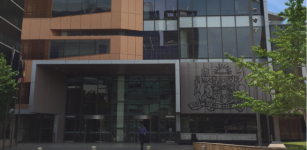Court Delays: Endangering the Community?

Several of our previous blogs have highlighted the delays experienced by courts across NSW – a problem that may worsen with Attorney General Gabrielle Upton flagged the closure of several regional courts.
The delays mean that some defendants are being held behind bars for years awaiting their trial dates, despite not being convicted of any crime.
In these cases, criminal defence lawyers will often make fresh applications for bail – arguing that aborted trial dates due to the prosecution’s failure to serve brief materials coupled with delays produced by a court system on the brink constitute a ‘fresh fact or circumstance’ sufficient to make a new bail application, even if past applications were refused.
The situation has led some conservative commentators to claim that the community is being put at risk because people charged with serious offences are being released from prison due to court delays.
Delay is Relevant in Determining Bail
Under section 18 of the Bail Act 2013, a magistrate or judge must consider a range of factors before deciding whether or not to grant bail.
One of those factors is the length of time the defendant is likely to spend in custody if bail is refused.
The defendant is more likely to achieve bail if significant delays are foreshadowed, especially if the case has already been delayed through factors like the prosecution’s failure to produce evidence as ordered by the court.
Media Reports
The Daily Telegraph recently reported that a Sydney man accused of sexually assaulting a woman was released on bail after the court heard it may take up to two years before he stands trial. But like most media reports, the article said little about the many other factors the court would have taken into account before reaching the decision to grant bail.
And in December 2015, accused Lin family killer Robert Xie was released on bail after a jury was unable to reach a verdict. Mr Xie had already spent four years in custody and had two cases previously aborted due to the ill health of the presiding judge, and the emergence of new evidence.
In granting Mr Xie bail, Supreme Court Justice Elizabeth Fullerton said:
‘For an accused person to remain in custody for five years or more is impossible to view as fair and commensurate with a fair and just criminal process.’
As discussed in recent blogs, superior courts have been plagued by ongoing delays. In 2014, the average time to finalise a District Court trial was 369 days when the defendant was on bail, or 300 days if that person was in custody.
This highlights the grave injustices experienced by defendants who are innocent of the charges brought against them.
Cases Being Shifted Interstate
At some courts, delays are so bad that cases are being moved interstate. This has occurred a number of times in family law matters – which are Commonwealth cases and can therefore be dealt with anywhere in Australia.
In one instance, a Wollongong lawyer was told that her client would have to travel to Brisbane for the Family Court hearing, because there were no judges available to hear the case locally.
In these cases, clients are left to bear the additional expense of travelling long distances while dealing with the burden of financially and emotionally taxing court proceedings. They may also need to pay for their lawyer’s travel expenses, or engage another lawyer from scratch.
Lawyers have partly blamed the delays on the Attorney-General’s failure to appoint new judges to replace those who have retired. According to recent reports, there are currently two vacant positions at the Federal Circuit Court – despite promises that these positions would be filled last year.
But the government has hit back, stating:
‘the appointment of a judge to a federal court is an important decision to which the Government gives careful consideration…Before making a recommendation to the Government and ultimately, the Governor-General in Executive Council, the Attorney-General has regard to a broad range of issues, including the expertise and background of potential candidates as well as consultation with relevant persons.’
One thing is for certain, lengthy court delays have the potential to cause grave injustice to innocent defendants and undue expense to litigants across the board.






